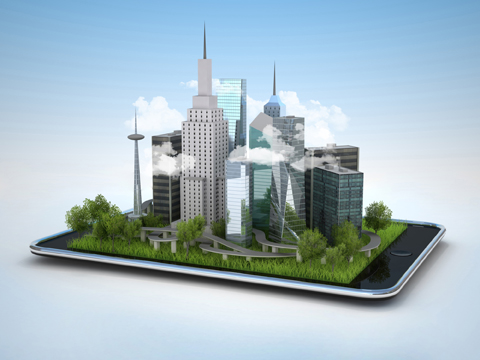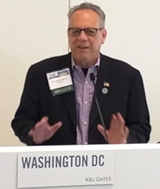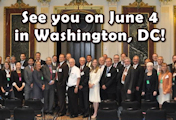Smart Cities: Promising, Complex and Coming Soon
Posted on November 19th, 2016 | No Comments »
Smart Cities: Promising, Complex and Coming Soon
Written by Vincent Caprio
 You have certainly heard about smart city projects. They help preserve water in California. In Sweden they make waste disposal more efficient. And if you cannot find a parking spot in Barcelona, the IoT (Internet of Things) system can be of great service. I could name dozens of other examples as I am sure all of you could as well. Because we hear “Smart City” almost as often as we hear “Kardashian” these days.
You have certainly heard about smart city projects. They help preserve water in California. In Sweden they make waste disposal more efficient. And if you cannot find a parking spot in Barcelona, the IoT (Internet of Things) system can be of great service. I could name dozens of other examples as I am sure all of you could as well. Because we hear “Smart City” almost as often as we hear “Kardashian” these days.
Smart city projects are in their infancy and promise to grow both in terms of the issues addressed and the complexity of the technologies used to offer smart solutions. There will be fits and starts, successes and failures, but the long slow march of technology will move forward and our cities will transform before our eyes.
Creating Smart Cities is Complex, Technically, Politically and Socially
The challenges that face smart city projects are not only technical in nature, they also require political and social adoption, not to mention entrepreneurial vision and vigor. A city is a complex organism. It is a place where thousands or even millions of people coexist to work, live, and raise families.
The quest to improve our cities is why we have urban planners and social scientists. It is why we hold elections. These fields of disparate focus and expertise exist to avoid poor policy by assessing what potential unintended effects might be of any given new technology. Demos Helsinki’s (a Nordic non-profit research and development organization) Mikko Annala explains that turning cities “smart” requires systematic engagement of those who are expected to live in these environments. “Without end-user testing and systematic learning, it is practically impossible to plan a smart city that is loved by its inhabitants.”
The nascent nature of the deployment of smart city technologies will naturally be accompanied by awkward moments and some unintended consequences, but these bumps in the road will give way to great efficiencies and cost savings over the longer term. It is not that difficult, in theory, to connect every water pump, every traffic light, and every bus so they would create a wealth of data. However, much work must be done to leverage the troves of data that are collected in a politically and socially expedient manner.
The End Goal
The end goal is to create and live in cities that function efficiently and make the lives of its citizens better by leveraging ever emerging technologies. Cities that, by their very design, facilitate the growth of a healthy society and economy. Creating smart cities requires planning and public private partnerships with corporations carrying a heavy load given their skills and expertise, but with the strategic input from political and social sectors as well. The smart cities of tomorrow will be created through a complex engagement of diverse stakeholders.




